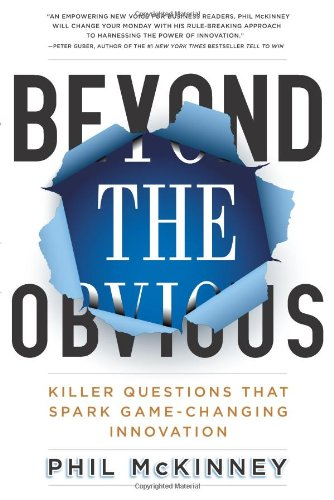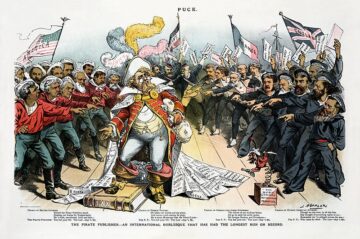Recently, the Delhi High Court rejected Sulphur Mills’ request for an interim injunction against multiple defendants, finding their patent on a sulphur-based agrochemical fertilizer to be invalid for being obvious. Analysing this decision, we are pleased to bring to you this guest post by Kartikeya Tandon. Kartikeya is an Advocate practicing in the High Court of Delhi. He was previously engaged as a law researcher in the Intellectual Property Division of the High Court of Delhi. He is interested in the development of law due to emerging technology. Views expressed here are those of the author’s alone.

Delhi HC in Sulphur Mills Limited v. Dharmaj Crop Guard Limited & Ors.– Case of Credible Challenge to the Validity of the Patent
By Kartikeya Tandon
“If safeguarding of patent rights is in public interest, equally eminently in public interest is the need to ensure that inventiveness is not stifled by allowing patents which are obvious from the teachings contained in prior art to monopolize the field.”
The Hon’ble Delhi High Court in its recent decision in Sulphur Mills Limited v. Dharmaj Crop Guard Limited & Anr. denied interlocutory injunction to Sulphur Mills Limited for a sulphur-based agrochemical fertilizer. The Plaintiff had filed separate suits against various Defendants alleging infringement of its registered patent IN 282429 titled “Novel Agricultural Composition.”
The Legal Position Regarding Grant of Interim Injunctions in Patent Suits
With respect to interim injunctions in patent suits, Justice C. Hari Shankar held that while dealing with an application for interlocutory relief, the Court is not expected to scan the entire evidence and balance the evidence of one side against the other as this exercise is to be done at the stage of trial. Justice Shankar relied on the judgement of Astrazeneca AB v. Intas Pharmaceuticals Ltd to hold that a matter at the interim stage must be viewed prima facie as the legal right asserted by the plaintiff and its alleged violation are both contested and remain uncertain till they are established at the trial on evidence.
The Court further reiterated that the applicable legal standard at the interim stage, where the Defendant raises a defense under Section 107 of the Patents Act, 1970 is that the Defendant is only required to set up a credible challenge to the validity of the suit patent on one or more of the grounds envisaged by Section 64(1), to avoid an interim injunction. This flows from the principle of denial of presumptive validity to a patent which is expressly provided for in Section 13(4) of the Patents Act, 1970 and has been interpreted as such by the Hon’ble Supreme Court in the landmark judgement of Bishawanath Prasad Radhey Shyam v. Hindustan Metal Industries.
Legal Position qua obviousness
The crux of the judgement was, however, the determination on the aspect of obviousness in view of the prior art cited by the Defendants. The Court held that Section 2(1) (ja) of the Patents Act, 1970 defines “inventive step” as meaning “a feature of an invention that involves technical advance as compared to the existing knowledge or having economic significance or both and that makes the invention not obvious to a person skilled in the art”. There is no reference, therefore, to a person ordinarily skilled in the art and the word “ordinarily” is superfluous and introduces a needless element of subjectivity into the definition which, otherwise, is clear and precise.
On the question of mosaicing of the features in the prior art, the Court referred to the decision of Bishwanath Prasad Radhey Shyam. The said judgement illustrates the legal position of the “Person Skilled in the Art” (PSA), vis-à-vis the prior art and the suit patent, to analyze obviousness. Relying on the said judgment Justice C. Hari Shankar held that the PSA is endowed with “common general knowledge”. This knowledge would encompass all knowledge present in all “literature available to him”. Thus, all existing literature relating to the prior art must be taken into consideration while deciding the issue of obviousness, and, if the existing literature teaches, or shows the way, for the PSA to arrive at the invention forming subject matter of the suit patent, the suit patent would be obvious. Thus, there can be mosaicing of prior art and any monopoly which would interfere, with the skilled craftsman’s (PSA) use of his skills and knowledge, would be intolerable.
Conclusion
The Plaintiff averred that the suit composition facilitated almost instantaneous conversion of sulphur into sulphate for ready uptake by the plants. This overcame serious drawbacks in the conventional agrochemical formulations which could not provide yield proportional to the investment in procuring and applying the formulations. On the other hand, the Defendants citied articles published in academic journals as also American and British patents as prior arts. However, the Plaintiff’s prior patent was cited as the primary prior art.
Applying the aforesaid principles, the Court held that the prior arts constitute literature, which is part of the common general knowledge, available to the PSA on the priority date of the suit patent. The PSA as a “skilled craftsman” through these prior arts had enough teaching to guide him to synthesize the formulation claimed in the suit patent. Thus, the defendants had succeeded in setting up a credible challenge to the validity of the suit patent on the ground of obviousness vis-à-vis prior art and the Plaintiff could not be granted the interlocutory injunction that it sought.
Remarks
The judgement is one of the few cases wherein the Delhi High Court restrained itself from granting an interim injunction in a patent case. It is another judgment in a long line of cases trying to answer the question – how skilled is a “Person Skilled in The Art” supposed to be? It relies on the landmark judgement of the Hon’ble Supreme Court in Bishwanath Prasad Radhey Shyam and builds on it to say that the PSA is endowed with common general knowledge and this knowledge would encompass all knowledge present in all literature available to him.
Critically, the judgement holds that the mosaicing of the features in the prior art by a PSA must be taken into consideration while determining obviousness. This is not the first time that a court has taken a position that mosaicing of prior arts can be permitted. The Calcutta High Court in Guangdong Oppo Mobile Telecommunications Corp. Ltd. v. Controller of Patents and Designs held that mosaicing is permissible but “there must be some common thread linking the claim with the prior art documents obvious to a person skilled in the art.” Further, in the case of Sterlite Technologies Ltd. v. HFCL Ltd., the Delhi High Court held that “the objection of ‘mosaicing’ would normally apply when completely unconnected documents are presented in a combination to defeat the inventive step in the invention.” Justice C. Hari Shankar in the present judgment takes the later approach and simply holds that all existing literature relating to the prior art must be taken into consideration while deciding the issue of obviousness, thus, relieving the court from the burden of delving into the link between the claim of the subject patent and the cited prior arts for the purpose of mosaicing.
Further, Justice C. Hari Shankar while relying on Monsanto Technology LLC v. Nuziveedu Seeds Ltd voices concern about advisability of expert affidavits while deciding applications for interlocutory relief in patent suits as neither side admits the veracity of the affidavits cited by the other as the affidavits have not been subjected to the exercise of admission and denial and, the experts have not been cross examined.
All things considered, this judgement brings much needed clarity on the aspect of mosaicing as also the definition of the PSA. It removes subjectivity and will help in a more objective inventive step analysis in patent cases.
- SEO Powered Content & PR Distribution. Get Amplified Today.
- PlatoData.Network Vertical Generative Ai. Empower Yourself. Access Here.
- PlatoAiStream. Web3 Intelligence. Knowledge Amplified. Access Here.
- PlatoESG. Carbon, CleanTech, Energy, Environment, Solar, Waste Management. Access Here.
- PlatoHealth. Biotech and Clinical Trials Intelligence. Access Here.
- Source: https://spicyip.com/2024/04/delhi-hc-in-sulphur-mills-limited-v-dharmaj-crop-guard-limited-ors-case-of-credible-challenge-to-the-validity-of-the-patent.html
- :has
- :is
- :not
- :where
- $UP
- 1
- 107
- 4
- 500
- a
- About
- academic
- Act
- admits
- advance
- advocate
- against
- Agricultural
- All
- alleged
- Allowing
- almost
- alone
- also
- Amazon
- American
- an
- analysing
- analysis
- analyze
- and
- Another
- answer
- any
- applicable
- Application
- applications
- Apply
- Applying
- approach
- ARE
- arrive
- Art
- articles
- Arts
- AS
- aspect
- At
- available
- avoid
- Balance
- BE
- been
- being
- between
- both
- bring
- Brings
- British
- builds
- burden
- but
- by
- CAN
- case
- cases
- challenge
- cited
- claim
- claimed
- clarity
- clear
- combination
- Common
- compared
- completely
- composition
- Concern
- consideration
- considered
- constitute
- contained
- controller
- conventional
- Conversion
- Corp
- could
- Court
- craftsman’s
- credible
- crop
- Cross
- crux
- Date
- dealing
- Deciding
- decision
- defendants
- Defense
- Defines
- definition
- Delhi
- delving
- determination
- determining
- Development
- Division
- documents
- done
- drawbacks
- due
- Economic
- element
- emerging
- Emerging Technology
- encompass
- engaged
- enough
- ensure
- Entire
- equally
- established
- Ether (ETH)
- evidence
- Exercise
- existing
- expected
- expert
- experts
- expressed
- expressly
- facilitated
- Feature
- Features
- fertilizer
- few
- field
- filed
- finding
- First
- first time
- Flows
- For
- forming
- formulation
- formulations
- from
- further
- General
- grant
- granted
- granting
- Ground
- grounds
- Guard
- Guest
- Guest Post
- guide
- had
- hand
- Have
- having
- he
- Held
- help
- here
- High
- him
- his
- hold
- holds
- How
- However
- HTTPS
- if
- illustrates
- in
- infringement
- intellectual
- intellectual property
- interest
- interested
- interfere
- interim
- into
- Introduces
- invalid
- Invention
- investment
- involves
- issue
- IT
- ITS
- itself
- Justice
- knowledge
- landmark
- later
- Law
- Legal
- Limited
- Line
- LINK
- linking
- literature
- LLC
- Long
- Ltd
- MAKES
- Matter
- max-width
- meaning
- metal
- mills
- Mobile
- more
- much
- multiple
- must
- Need
- needed
- Needless
- Neither
- no
- normally
- objective
- obvious
- of
- on
- ONE
- only
- oppo
- or
- ordinarily
- Other
- otherwise
- part
- patent
- Patents
- person
- pharmaceuticals
- plants
- plato
- Plato Data Intelligence
- PlatoData
- pleased
- position
- Post
- precise
- present
- presented
- previously
- primary
- principle
- principles
- Prior
- priority
- property
- proportional
- provide
- provided
- public
- published
- purpose
- question
- raises
- ready
- recent
- reference
- referred
- regarding
- registered
- Rejected..
- relief
- relies
- relying
- remain
- removes
- request
- required
- researcher
- respect
- right
- rights
- safeguarding
- Said
- say
- scan
- Section
- seeds
- separate
- serious
- set
- setting
- Shows
- side
- significance
- simply
- skilled
- skills
- some
- sought
- Stage
- standard
- Step
- subject
- such
- Suit
- suits
- supposed
- Supreme
- Supreme Court
- synthesize
- taken
- takes
- Teaching
- Technical
- Technologies
- Technology
- telecommunications
- that
- The
- their
- There.
- therefore
- These
- they
- things
- this
- those
- Through
- Thus
- till
- time
- titled
- to
- trial
- trying
- Uncertain
- under
- uptake
- use
- validity
- various
- View
- viewed
- views
- VIOLATION
- VOICES
- was
- Way..
- we
- when
- which
- while
- will
- with
- Word
- would
- Yield
- you
- zephyrnet






![Webinar on ‘The Proposal to Amend the Indian Patents Act: Adverse Implications for Access to Medicines’ [June 2]](https://platoaistream.net/wp-content/uploads/2023/06/webinar-on-the-proposal-to-amend-the-indian-patents-act-adverse-implications-for-access-to-medicines-june-2-360x509.jpg)





